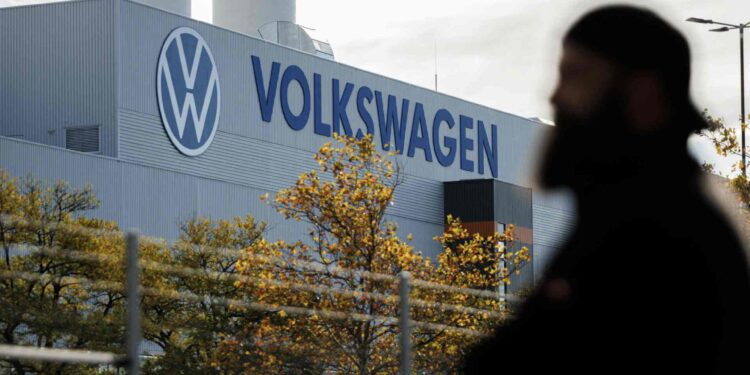Volkswagen – the largest car manufacturer in Europe – is witnessing a sharp shift in its strategy towards the production of electric vehicles, which raised major concerns among workers in its factories in Germany, especially in the city of Zvekao.
The company decided to reduce its production to half to only 750,000 units annually, compared to 1.5 million units in the past, according to the Financial Times.
Causes of decision
These decisions are due to the decline in demand for Volkswagen electric cars in Europe. Car delivery operations decreased to 3.8 million units annually in the region, compared to 4.8 million units in 2019.
The company also faces intense competition from Chinese companies that offer advanced technologies and lower production costs, which increases the pressure on Volkswagen to maintain its competitiveness in the market.
“We face a market that is no longer growing, but may face a recession in the future,” David Powers, the financial manager of the Volkswagen brand, told the newspaper.
Functions on workers
Under the agreement concluded by Volkswagen with the IG Metal Syndicate, jobs were guaranteed until 2030, but the company intends to reduce the number of jobs by 35 thousand jobs during that period through early retirement and voluntary resignations.
At the Zevikao factory, production will be limited to the “Audi Q4 E Tra -Tron” by 2027, leaving the factory without a clear vision for the future.
“If we stop producing cars, the supply companies will also stop in Saxony. We are creating a poor country,” said a worker who spent his entire working life at the Zevikao factory.
Wide economic repercussions
The repercussions are not only limited to Volkswagen, but also to the German economy as a whole, according to the Financial Times.
The company is an essential engine for employment and investment in the region, and according to Konkance Aranda, the mayor of Zevicao, “many of my region’s residents depend on their livelihood on Volkswagen. There is now a great lack of certainty.”
Although the recent agreement with the union will achieve an annual savings of the company estimated at 4 billion euros by 2030, the absence of clear production plans for the future puts major challenges against the Volkswagen factories in Germany.



